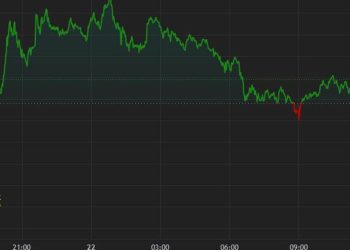If a senior is in a financial emergency, they may consider a reverse mortgage loan to help cover unexpected expenses, pay down debt, or afford monthly necessities. Reverse mortgages are available to seniors 62 and older who have at least 50% equity in their homes. In addition, seniors must meet specific property requirements, live in their home as their primary residence, and pay property taxes, insurance, and any house repairs during the duration of the loan. Here are several reasons retirees may consider a reverse mortgage loan.
In a financial emergency, seniors may not have the luxury of going through drawn-out processes to get money. This makes a reverse mortgage an attractive option because it provides a secure and quick cash flow for retirees. A reverse mortgage allows seniors to borrow against the equity of their home to receive their line of credit or cash lump sum.
A reverse mortgage has several requirements, including meeting a HUD-approved reverse mortgage counselor. This meeting ensures that seniors understand their options before committing to a reverse mortgage loan. Other qualifications include:
- Specific property types: single-family homes, 2–4 unit properties, condominiums, townhomes, and manufactured homes (built after 1976).
- Financial responsibility: paying insurance, property taxes, and home maintenance.
Taking out a reverse mortgage can provide proceeds either as a cash lump sum or a line of credit. In either case, the IRS classifies money received from a reverse mortgage as a loan advance as opposed to income. That means that, unlike other sources of retirement income like distributions from a 401(k) or IRA, which would be taxed, reverse mortgages are not taxable.
Taking a large withdrawal from a retirement account could help counteract a financial emergency, but the withdrawal would be subject to tax, often heavier tax rates than normal. Meaning seniors wouldn’t be able to keep all the money they carefully saved for retirement, facing a penalty for taking so much out at once due to the unexpected crisis. A reverse mortgage allows a large sum to be taken without that kind of penalty. So when faced with a financial emergency where seniors need a lot of money fast, it can be better for them to go with the option that lets them keep all their money rather than having to pay hefty rates of tax on it.
Seniors also choose reverse mortgages as solutions to financial emergencies for their flexibility. Reverse mortgages do not have the monthly payments that can be so burdensome, unlike traditional mortgages. Instead, reverse mortgages offer financial control and balance, all in the hands of the lender.
Seniors control how they want to repay their reverse mortgage, and it is easy to refinance the loan if they choose. This flexibility means that seniors can use a reverse mortgage to deal with a financial emergency and then start up a more regular payment plan if they’d like. Reverse mortgages can even be bought back when the time of financial crisis ends. With a reverse mortgage, seniors choose what their success looks like when it comes to managing their money in and out of any financial crisis.
When one is faced with a financial emergency, especially as a senior with limited income and pecuniary resources, it can feel natural to panic or despair. But there is hope and help available. No matter the specific circumstances, financial emergencies don’t have to be daunting or destructive. With the help of qualified reverse mortgage lenders, seniors who qualify can quickly and securely take control of their finances with a reverse mortgage on their home.
While reverse mortgages may not be the best fit for every financial situation, they can be a great solution for seniors facing financial emergencies. If you think a reverse mortgage may be the right fit for your circumstances, you can get personalized support from qualified experts who will not only offer their products and services but educate you on all of your options.



















